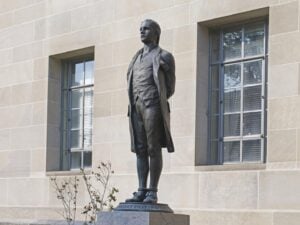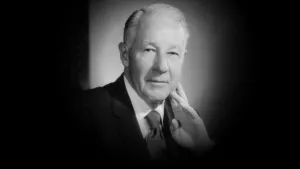Imagine a political movement that says it’s committed to “equal rights”—and means it. Not just equality in a few cherry-picked rights but all human rights, including the most maligned, property rights. Imagine a movement whose raison d’être is to oppose any and all special privileges from government for anybody.
When it comes to political parties, most of them in recent American history like to at least say they’re for equal rights. If we’ve learned anything from politics, though, surely the first lesson is this: What the major parties say and do are two different things.
In American history no such group has ever been as colorful and as thorough in its understanding of equal rights as one that flashed briefly across the political skies in the 1830s and ’40s. They were called “Locofocos.” If I had been around back then, I would have proudly joined their illustrious ranks.
The Locofocos were a faction of the Democratic Party of President Andrew Jackson, concentrated mostly in the Northeast and New York in particular, but with notoriety and influence well beyond the region. Formally called the “Equal Rights Party,” they derived their better known sobriquet from a peculiar event on October 29, 1835.
Turn On The Lights, The Party’s Starting
Democrats in New York City were scrapping over how far to extend Jackson’s war against the federally chartered national bank at a convention controlled by the city’s dominant political machine, Tammany Hall. (He had killed the bank in 1832 by vetoing its renewal.) When the more conservative officialdom of the convention expelled the radical William Leggett, editor of the Evening Post, they faced a full-scale revolt by a sizable and boisterous rump. The conservatives walked out, plunging the meeting room into darkness as they left by turning off the gas lights. The radicals continued to meet by the light of candles they lit with matches called “loco focos” (Spanish for “crazy lights”).
With the Tammany conservatives gone and the room once again illuminated, the Locofocos passed a plethora of resolutions. They condemned the national bank as an unconstitutional tool of special interests and an engine of paper-money inflation. They assailed all monopolies, by which they meant firms that received some sort of privilege or immunity granted by state or federal governments. They endorsed a “strict construction” of the Constitution and demanded an end to all laws “which directly or indirectly infringe the free exercise of equal rights.” They saw themselves as the true heirs of Jefferson, unabashed advocates of laissez faire and of minimal government confined to securing equal rights for all and dispensing special privileges for none.
Three months later, in January 1836, the Locofocos held a convention to devise a platform and endorse candidates to run against the Tammany machine for city office in April. They still considered themselves Democrats, hoping to steer the party of Jefferson and Jackson to a radical reaffirmation of its principled roots rather than bolt and form a distinct opposition party. “We utterly disclaim any intention or design of instituting any new party, but declare ourselves the original Democratic party,” they announced.
The “Declaration of Principles” the Locofocos passed at that January gathering is a stirring appeal to the bedrock concept of rights, as evidenced by these excerpts:
The true foundation of Republican Government is the equal rights of every citizen, in his person and property, and in their management.
The rightful power of all legislation is to declare and enforce only our natural rights and duties, and to take none of them from us. No man has a natural right to commit aggression on the equal rights of another; and this is all the law should enforce on him.
The idea is quite unfounded that on entering into society, we give up any natural right.
The convention pronounced “Hostility to any and all monopolies by legislation,” “unqualified and uncompromising hostility to paper money as a circulating medium, because gold and silver are the only safe and constitutional currency,” and “Hostility to the dangerous and unconstitutional creation of vested rights by legislation.”
These days Congress and the legislatures of our 50 states routinely bestow advantages on this or that group at the expense of those whom the same laws disadvantage—from affirmative action to business subsidies. The Locofoco condemnation of such special privilege couldn’t be clearer: “We ask that our legislators will legislate for the whole people and not for favored portions of our fellow-citizens, thereby creating distinct aristocratic little communities within the great community. It is by such partial and unjust legislation that the productive classes of society are . . . not equally protected and respected as the other classes of mankind.”
William Leggett, the man whose expulsion from the October gathering by the regular Democrats of Tammany Hall sparked the Locofocos into being, was the intellectual linchpin of the whole movement. After a short stint editing a literary magazine called The Critic, he was hired as assistant to famed poet and editor William Cullen Bryant at the New York Evening Post in 1829. Declaring “no taste” for politics at first, he quickly became enamored of Bryant’s philosophy of liberty. He emerged as an eloquent agitator in the pages of the Post, especially in 1834 when he took full charge of its editorial pages while Bryant vacationed in Europe. He struck a chord with the politically unconnected and with many working men and women hit hard by the inflation of the national bank.
In the state of New York at the time, profit-making corporations could not come into being except by special dispensation from the legislature. This meant, as historian Richard Hofstadter explained in a 1943 article, that “men whose capital or influence was too small to win charters from the lawmakers were barred from such profitable lines of corporate enterprise as bridges, railroads, turnpikes and ferries, as well as banks.”
Leggett railed against such privilege: “The bargaining and trucking away of chartered privileges is the whole business of our lawmakers.” His remedy was “a fair field and no favor,” free market competition unfettered by favor-granting politicians. He and his Locofoco followers were not antiwealth or antibank, but they were vociferously opposed to any unequal application of the law. To Leggett and the Locofocos, the goddess of justice really was blindfolded!
The Locofocos won some local elections in the late 1830s and exerted enough influence to see many of their ideas embraced by no less than Martin Van Buren when he ran successfully for president in 1836. By the middle of Van Buren’s single term, the Locofoco notions of equal rights and an evenhanded policy of a small federal government were reestablished as core Democratic Party principles. There they would persist through the last great Democratic president, Grover Cleveland, in the 1880s and 1890s. Sadly, those essentially libertarian roots have long since been abandoned by the party of Jefferson and Jackson.
If you’re unhappy that today’s political parties give lip service to equal rights as they busy themselves carving yours up and passing out the pieces, don’t blame me. I’m a Locofoco.




